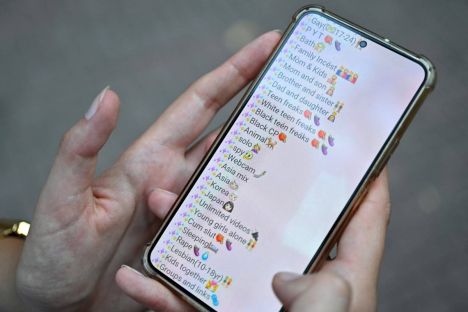International humanitarian aid to Northwest Syria ‘too late’ to rescue more victims
International humanitarian aid to Northwest Syria ‘too late’ to rescue more victims
Eight days after the 7.8- and 7.4-magnitude earthquakes that hit southern Turkey and Syria, where more than 32,000 people were killed and thousands of others were injured, the governments of both countries agreed to open two border crossings to allow humanitarian aid to enter Northwest Syria, which is under the control of the Syrian opposition.
However, Syrian rescuers said that the humanitarian aid is too late amid the dwindling possibility of finding more survivors in the area. The death toll in Northwest Syria rose to 2,274, including 2,170 bodies recovered by the Syria Civil Defense (White Helmets) between February 6 and February 13. Meanwhile, the injured over the same period reached more than 12,400, including 2,950 treated by the relief members.
Opening the border crossings occurred after the White Helmets called for immediate and urgent humanitarian aid and equipment to help rescue more victims, demanding the border crossings with Turkey be opened to allow aid to enter opposition-controlled Northwest Syria.
“Since the moment the earthquake struck seven days ago, we have been appealing to the UN to send urgent assistance to aid our rescue operations in Northwest Syria. For days these calls went unheeded, and during this time countless of lives have been needlessly lost,” said the head of the White Helmets, Raed Al-Saleh, in a statement on February 12.
Saleh criticized UN Under-Secretary-General for Humanitarian Affairs and Emergency Relief Coordinator Martin Griffiths’ visit to the region, saying, “This visit is too little, too late. The UN’s failure to act quickly to save Syrian lives in the face of a humanitarian catastrophe is utterly shameful and should be a stain on its conscience.”
The delay in sending international relief aid undoubtedly led to an increase of quake victims, said Saleh, noting that more victims could have been rescued if there were more well-trained relief workers with technical equipment.
Griffiths himself confessed that the Syrian people in the northwest were abandoned by the international community during this catastrophe, saying on Twitter on February 12, “We have so far failed the people in Northwest Syria. They rightly feel abandoned. Looking for international help that hasn’t arrived. My duty and our obligation is to correct this failure as fast as we can. That’s my focus now.”
In special comments to Jusoor Post on February 15, Saleh said that all dead bodies were recovered from the quake site and that the relatives who identified them will bury them. “Quite a number of dead bodies were not recognized yet, but the majority of the identified [victims] will be buried by their relatives,” he said.
The quake struck the Syrian governorates of Aleppo and Idlib, affecting nine districts, including Afrin, Al-Bab, Azaz, Jarablus, Jebel Saman, Idlib, Ariha, Jisr Ash-Shugur, and Harim. It affected a total of 18,172 families, according to the Information Management and Mine Action Programs (iMMAP) and Data Friendly Space (DFS) report.
In previous remarks to Jusoor Post, Ahmed al-Khatib, spokesperson for the White Helmets, revealed that in the first five days after the quake hit the region, there was no international assistance provided to the opposition-controlled parts in Syria through the only humanitarian corridor, the Bab Al-Hawa border crossing, which was the only open route to about 4.5 million people in Syria. He added that there was a lack of equipment that was needed to remove the rubble in order to rescue people.
Khatib said that no aid or equipment had arrived yet to help with the rescue process. However, the first humanitarian aid that entered the quake-stricken area was dispatched from Iraqi Kurdistan from the Bab Al-Salameh border crossing after six days. On Monday, 12 trucks loaded with aid supplies from Saudi Arabia also entered the region.
<blockquote class="twitter-tweet"><p lang="ar" dir="rtl"><a href="https://twitter.com/hashtag/%D9%85%D8%B1%D9%83%D8%B2_%D8%A7%D9%84%D9%85%D9%84%D9%83_%D8%B3%D9%84%D9%85%D8%A7%D9%86_%D9%84%D9%84%D8%A5%D8%BA%D8%A7%D8%AB%D8%A9?src=hash&ref_src=twsrc%5Etfw">#مركز_الملك_سلمان_للإغاثة</a> يوزع المواد الإغاثية العاجلة لمتضرري الزلزال في منطقة جندريس السورية <a href="https://twitter.com/hashtag/%D8%B9%D8%B7%D8%A7%D8%A4%D9%83%D9%85_%D9%8A%D8%AE%D9%81%D9%81_%D8%B9%D9%86%D9%87%D9%85?src=hash&ref_src=twsrc%5Etfw">#عطاؤكم_يخفف_عنهم</a> <a href="https://t.co/gLJbJBdR29">pic.twitter.com/gLJbJBdR29</a></p>— مركز الملك سلمان للإغاثة (@KSRelief) <a href="https://twitter.com/KSRelief/status/1625487933640769536?ref_src=twsrc%5Etfw">February 14, 2023</a></blockquote> <script async src="https://platform.twitter.com/widgets.js" charset="utf-8"></script>
A total of 58 trucks of humanitarian assistance entered the area through the Bab Al-Hawa border crossing since February 9, and 11 trucks through the Bab Al-Salameh border crossing with Turkey on February 14, after both the Syrian regime and Turkey approved the opening of two more border crossings for humanitarian aid, the iMMAP/DFS report said.
A week after the earthquake, two more border crossings were opened in cooperation with the Syrian regime, the United Nations, and Turkey.
UN Secretary-General António Guterres announced in a statement on February 13 that Syrian President Bashar al-Assad approved opening the Bab Al-Salameh and Bab Al-Ra’ee border crossings with Turkey for three months “to allow for the timely delivery of humanitarian aid.”
Syria and Turkey share ten border crossings, including three in opposition-controlled areas (Baba Al-Hawa, Bab Al-Salameh and Bab Al-Ra’ee). However, Turkey refused to open some of these crossings, which are in areas controlled by Syria’s Kurdistan Workers’ Party (PPK). In a press conference with his Libyan counterpart, Najla al-Mangoush, in Ankara, Turkish Foreign Minister Mevlut Cavusoglu said that his country will not open border crossings in PPK-controlled areas.
“We told the international community and the UN that they could send humanitarian aid through the two gates under our control. We said that we can open these gates to humanitarian aid,” he was quoted as saying by the Anadolu Agency.







